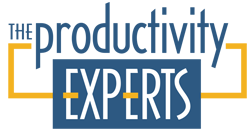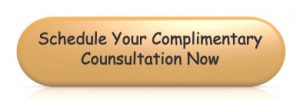The Culture of Rewarding Busyness
Cadillac came out with a commercial, one you might have already seen, where a gentleman talks about how Berliners take a month off from work, how we went to the moon and got “bored”, and why is that? Because Americans believe in hard work – so instead of taking a month off, we only take two weeks off. What was this commercial trying to reveal? We would rather work and be consumed by busyness rather than just relax!
While we are slaving away and only taking our two weeks of vacation – unlike those Berliners – are we really being productive when we are this busy? Is our attention, as Americans, more focused on staying late on the job rather than actually being productive? How about the burnout rate? And we are proud of that?!
The Culture of Rewarding Busyness
Journalist Brigid Schulte found herself working late nights at the office, then turning around to be a mom to her children. She found herself feeling overworked, overwhelmed, and very unproductive. Lisa Evans, who tells Schulte’s story on her blog, says this: “Schulte had bought into a ‘culture of busy.’ That is, a work environment where logging in long hours and complaining about not having any time in the day is considered a status symbol and a sign of success.”
Pam Ross, Culture Developer and Speaker, names a few ways you can see this sort of culture in yourself or in your office.
People do not take vacations. When people say “I’m too busy to take a vacation”, do they sound like it’s a sort of honor for them? This is not rewarding productivity, but rather busyness. Being productive will allow you to have time for a vacation.
People offer to stay at work late one day to get off early another day. Ross describes this as, “an indicator that seat time is your measure of productivity. If you’re measuring actual results, it doesn’t matter when someone is at work – it matters what they accomplish. Just because people are ‘at work’ doesn’t mean they are being productive. Just because someone is not ‘at work’ doesn’t mean they aren’t being productive.”
[wpob id=”2″]Nobody takes lunch breaks. This is another indicator that people are rewarding busyness rather productivity. Tony Schwartz, author of The Power of Full Engagement, states that you need to rest your mind by taking that lunch break. It will not only re-energize you, but help you be more productive afterwards.
Have you ever sensed this in your office? Do you use your long hours and complaints as a sign of success? Have you created this culture within yourself?
Overcoming the Culture
Brigid wrote a book entitled, Overwhelmed: Work, Love, and Play When No One Has the Time, in which she explores the work culture and how business leaders should stop rewarding busyness and start paying attention to productivity.
In her study, she found Florida psychologists who studied famous musicians. The ones who were successful worked 90 minutes before taking a break. They even napped more than the ones who were not as good. Why? Because it was during those breaks when musicians discovered their “ah-ha” moments. They weren’t being pressured to be creative, so their brains were able to wander in innovative creative directions while in a state of relaxation.
Schwartz indicates that “working in pulses is the best way to be productive and energized throughout the day. [Ninety] minutes of work, then a break, with a longer break every few hours, helps you keep your level of productivity at a higher rate longer throughout the day.”
Cathy Sexton has even pointed out that working in 90 minute intervals is not only good for the mind, but for creativity, productivity and innovation. So, after working 90 minutes, get up and take a run, go for a walk around your building a few times, walk up and down the stairs, meet up with a friend for coffee or tea, meditate, stretch, or pick up an exercise class in this time period. You will need to find something that works with you and your company, so you can have some “me” quality time.
Another great thing you can do is take advantage of your vacation time! Enjoy and make the most of that vacation you’ve worked so hard for! Ernst & Young invested in a survey study of their employees and “found that for each additional 10 hours of vacation employees took, their year-end performance ratings from supervisors (on a scale of one to five) improved by 8 percent.” They also found through this survey that those who were regular vacationers stayed at the firm longer.
So, take those well-deserved breaks, because your mind needs it and uses that time to refresh itself. Stop being so busy and start being productive. Reward yourself for being productive with vacations, lunch breaks, and going home on time after working. Don’t burn yourself out, because that helps no one and it harms your health and mental capabilities.
To discover ways on how to take the next steps, ask Cathy a question at cathy@theproductivityexperts.com


